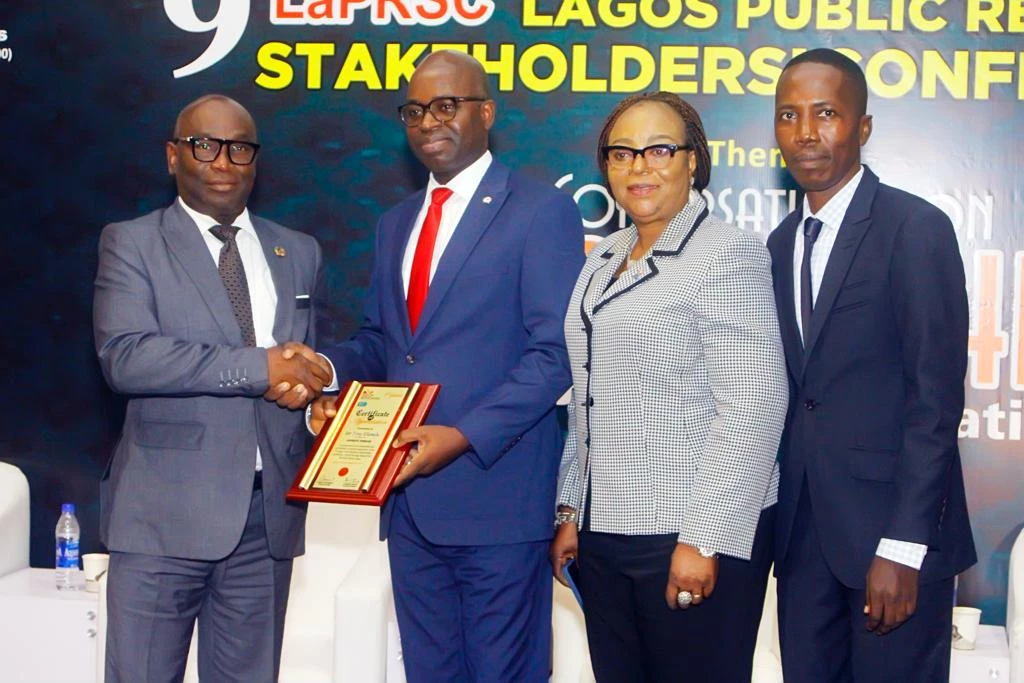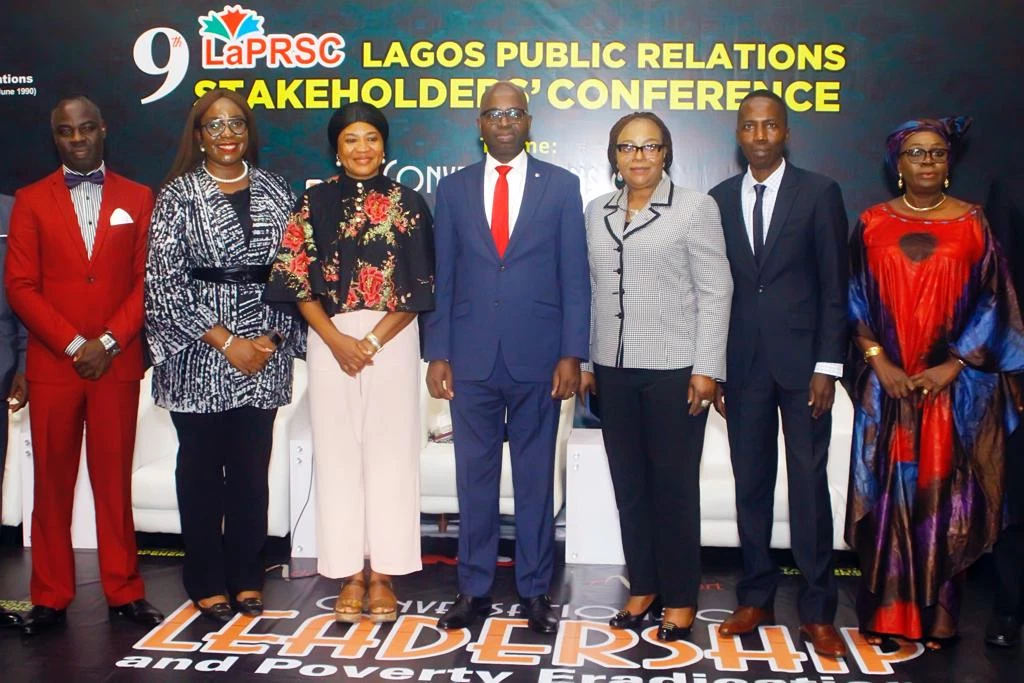PROTOCOL
I bring greetings from Mr. Tony O. Elumelu, CON, Chairman of Heirs Holdings and Founder of the Tony Elumelu Foundation on whose behalf, I speak with you all today. He would have loved to be here personally but for unavoidable institutional commitments, he is unable to be physically present with you all. He appreciates the invitation and sends his warm wishes to you all.
The theme of this conference, Leadership and Poverty Eradication, is indeed a very important one. Poverty is the greatest enemy of humanity. Apart from breeding hunger, poverty also opens up an avalanche of crime and conflicts. It is right to say that no one can sleep with two eyes closed in a country where poverty thrives – not the rich and powerful, and certainly not its leaders. Poverty taints everything and affects everyone, and it also sets in motion a chain of events that creates chaos. In essence, poverty anywhere is a threat to all of us everywhere.
As corporate citizens, we have a moral obligation to lead the fight against this enemy, but it is not a one-man’s fight or for the government alone. It is a fight that must be owned and fought by every single one of us. The government alone cannot provide all the economic and social needs of a country. The solution is a multi-sector, and multi-stakeholder collaboration that will promote financial inclusion and social welfare. This is the reason why we speak about Africapitalism at Heirs Holdings.
Africapitalism is an economic philosophy propounded by Mr. Tony Elumelu. This philosophy advocates for the private and public sectors to collaborate to achieve the unified goal of alleviating poverty and facilitating shared prosperity. It is based on the belief that the African private sector has the power to transform the continent through long-term investments, creating both economic prosperity and social wealth.
In light of this, ladies and gentlemen, I would like to expatiate on four critical areas that will significantly impact our push towards poverty alleviation in Nigeria, namely:
– Positioning SMEs to thrive
– Leadership, Governance and Structure
– Promoting Financial Literacy and Inclusion
– Tackling Unemployment
Positioning SMEs to Thrive
– Government must create an environment and structure to enable capital to flow freely across the country. The best way to do this is to incentivize the free movement of capital through the growth and development of small business enterprises.
– SMEs are the lifeblood of any economy and countries that prioritise the success of SMEs position themselves for wealth creation.
For instance, the development of countries like China, Germany, France, and others can be attributed to the success of their SMEs.
– Available data show that SMEs in Nigeria contribute up to 48% of national GDP. SMEs account for 96% of businesses and provide 84% of employment.
– In a country of over 200 million people with 40% of the population classified as youths below the age of 35 years, SMEs can create meaningful employment opportunities that will stall the alarming talent drain across the country. SMEs have the capacity to create opportunities for people to feed themselves and care for their families.
Leadership, Governance and Structure
– To drive financial inclusion, regulators and our leaders have a key role to play. Restrictive policies should be relaxed to encourage more people, especially rural dwellers access financial services.
– Regulatory requirements should be flexible and favourable to financial providers, which would then allow them to create more value-adding products and services for people.
– More importantly, our leadership must create rules and regulations that encourage growth and not stifle creativity. Indeed, the success of any country is a testament to its leadership and governance structure.
– Poverty alleviation must consist of deliberate programmes that reach the grassroots, and a dogged commitment to implementing and tracking the plans must not be the same as usual.
Promoting Financial Literacy and Inclusion
– Financial inclusion and social welfare programmes have been identified globally as a panacea for poverty eradication. When people have access to financial services such as credits, loans, savings, life insurance, and others, they can fend for themselves and run sustainable businesses that would create a ripple effect on the country’s GDP.
– But access to these financial tools remains limited in Nigeria. We are still one of the top three unbanked countries in the world with 40% of our population living without access to financial services.
– In terms of access to life insurance which could guarantee financial security for people and their loved ones, the insurance penetration rate is way below 2% in our country. This, therefore, exposes a larger share of our population to risks and even creates a huge class of people who remain dependent on the small percentage that seems to be well-off.
– The question, then, is: How can we change the position?
– We need to promote financial literacy and equip our people with the knowledge of personal financial management skills such as saving, investing, borrowing, budgeting, and life insurance protection. Nigerians should understand that developing these skills will help them live a better quality of life; a life of self-reliance and financial independence.
– Also, access to financial services should not be a privilege; a typical example is life insurance. Contrary to popular opinion, low-income households need life insurance products more.
– Life insurance can help to cushion the financial impact associated with the loss of a breadwinner. Imagine a country that prioritises life insurance for every household and the guaranteed financial security that comes with this decision. It reduces the burden on government resources.
– Media stakeholders have a role to play in promulgating key messages that can influence people’s minds to make the right choices. The media is a very powerful tool that can be used to drive financial inclusion and social welfare in the country.
– Many of our people are ignorant when it comes to why, what, where, and how they can get certain financial products. Our media practitioners should actively utilize their platforms to sensitize, educate, and inform the public on ways financial products and services can help improve their living conditions.
– It is not enough to report news, the media must also be accountable for informing the public of life-saving information that will enhance the quality of life.
– All of us, from the public to the private sector, must see ourselves as stakeholders and work together to get the job done.

Tackling Unemployment
– Lastly, we cannot successfully eradicate poverty without directly tackling unemployment. Statistics show that the unemployment rate in Nigeria has increased from 27.1% in the second quarter of 2020 to an estimated 33% in 2022. This is alarming!
– Unemployment is undoubtedly a root cause of poverty. When people have no jobs, they get hungry and angry. They also become easy tools for criminal activities.
– At Heirs Holdings, we are guided by our corporate mission which is to improve lives and transform Africa. As a pan-African investment company with a presence in 4 continents and 24 African countries, each of our investee companies operates based on this same mission.
– As mentioned earlier, we are proponents of Africapitalism, hence we believe that the private sector has a role to play in the economic transformation of African communities by investing in key sectors of the economy.
– We do not shy away from this responsibility. That is why, for example, our two insurance companies, Heirs Life Assurance and Heirs Insurance Limited, are both committed to democratizing access to insurance – which is a great tool for financial inclusion and poverty eradication.
– We also believe in the democratisation of luck and the creation of economic opportunities. Our Group, Heirs Holdings, demonstrates this through the work of The Tony Elumelu Foundation.
– The Tony Elumelu Foundation was created to identify, support and empower young African entrepreneurs from across the 54 countries on the continent to fund and scale their business ideas.
– Thus far, over 15,000 young African entrepreneurs have benefitted directly from the Foundation, through the provision of a $5,000 non-refundable seed capital, alongside business training, mentorship, and market access to these young African entrepreneurs.
– Our fulfilment is seeing these young ones creating financial independence, creating jobs for their immediate communities, and breaking the cycle of poverty across the continent.
– Poverty breeds conflict which leads to insecurity. That is why all hands must be on deck to tackle this issue.
– There must be an active collaboration amongst private sector leaders, government leaders, industry leaders, and the media if we must drive financial inclusion, empower people with knowledge and resources, and put sustainable measures in place to dramatically reduce the rate of poverty in our communities.
– Nigeria has all it takes to succeed. What we need is execution and an unflinching optimism that very soon, Nigeria will become an industry powerhouse, poised right at the centre of the world
– Once again, ladies and gentlemen, I thank you for the opportunity.
Mr. Niyi Onidafe Represented Mr. Tony Elumelu, CON at the Lagos Public Relations Stakeholders’ Conference.
